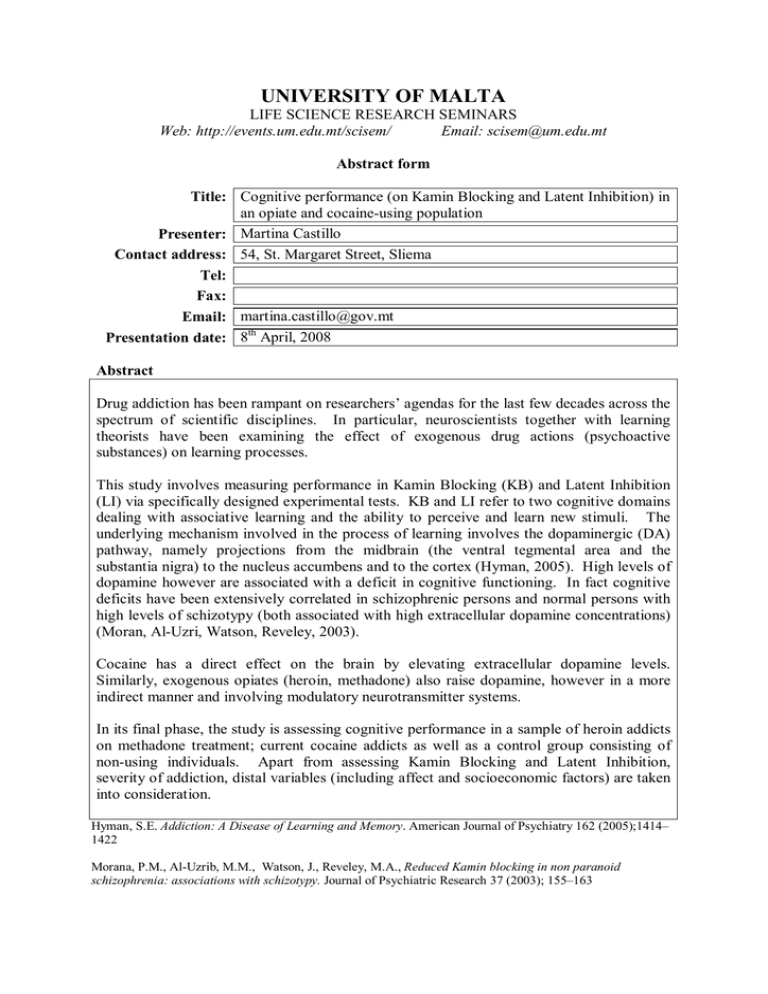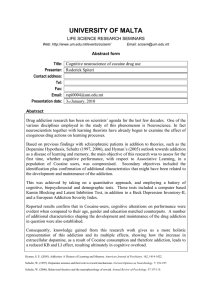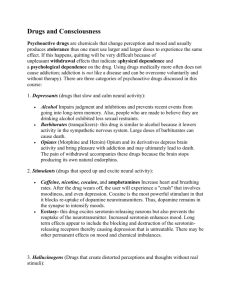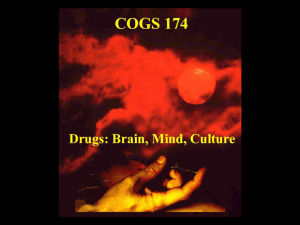UNIVERSITY OF MALTA
advertisement

UNIVERSITY OF MALTA LIFE SCIENCE RESEARCH SEMINARS Web: http://events.um.edu.mt/scisem/ Email: scisem@um.edu.mt Abstract form Title: Cognitive performance (on Kamin Blocking and Latent Inhibition) in an opiate and cocaine-using population Presenter: Martina Castillo Contact address: 54, St. Margaret Street, Sliema Tel: Fax: Email: martina.castillo@gov.mt Presentation date: 8th April, 2008 Abstract Drug addiction has been rampant on researchers’ agendas for the last few decades across the spectrum of scientific disciplines. In particular, neuroscientists together with learning theorists have been examining the effect of exogenous drug actions (psychoactive substances) on learning processes. This study involves measuring performance in Kamin Blocking (KB) and Latent Inhibition (LI) via specifically designed experimental tests. KB and LI refer to two cognitive domains dealing with associative learning and the ability to perceive and learn new stimuli. The underlying mechanism involved in the process of learning involves the dopaminergic (DA) pathway, namely projections from the midbrain (the ventral tegmental area and the substantia nigra) to the nucleus accumbens and to the cortex (Hyman, 2005). High levels of dopamine however are associated with a deficit in cognitive functioning. In fact cognitive deficits have been extensively correlated in schizophrenic persons and normal persons with high levels of schizotypy (both associated with high extracellular dopamine concentrations) (Moran, Al-Uzri, Watson, Reveley, 2003). Cocaine has a direct effect on the brain by elevating extracellular dopamine levels. Similarly, exogenous opiates (heroin, methadone) also raise dopamine, however in a more indirect manner and involving modulatory neurotransmitter systems. In its final phase, the study is assessing cognitive performance in a sample of heroin addicts on methadone treatment; current cocaine addicts as well as a control group consisting of non-using individuals. Apart from assessing Kamin Blocking and Latent Inhibition, severity of addiction, distal variables (including affect and socioeconomic factors) are taken into consideration. Hyman, S.E. Addiction: A Disease of Learning and Memory. American Journal of Psychiatry 162 (2005);1414– 1422 Morana, P.M., Al-Uzrib, M.M., Watson, J., Reveley, M.A., Reduced Kamin blocking in non paranoid schizophrenia: associations with schizotypy. Journal of Psychiatric Research 37 (2003); 155–163





